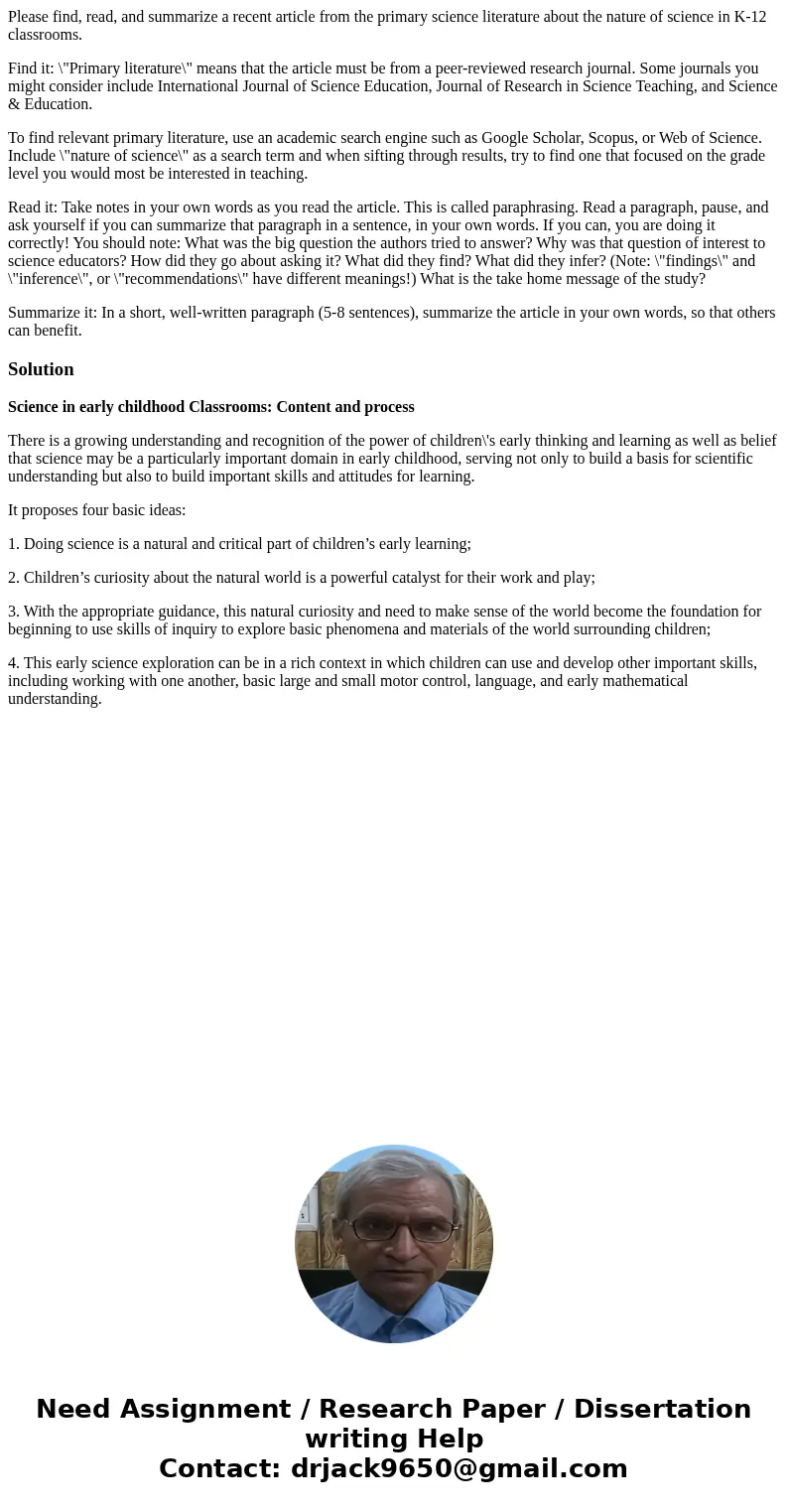Please find read and summarize a recent article from the pri
Please find, read, and summarize a recent article from the primary science literature about the nature of science in K-12 classrooms.
Find it: \"Primary literature\" means that the article must be from a peer-reviewed research journal. Some journals you might consider include International Journal of Science Education, Journal of Research in Science Teaching, and Science & Education.
To find relevant primary literature, use an academic search engine such as Google Scholar, Scopus, or Web of Science. Include \"nature of science\" as a search term and when sifting through results, try to find one that focused on the grade level you would most be interested in teaching.
Read it: Take notes in your own words as you read the article. This is called paraphrasing. Read a paragraph, pause, and ask yourself if you can summarize that paragraph in a sentence, in your own words. If you can, you are doing it correctly! You should note: What was the big question the authors tried to answer? Why was that question of interest to science educators? How did they go about asking it? What did they find? What did they infer? (Note: \"findings\" and \"inference\", or \"recommendations\" have different meanings!) What is the take home message of the study?
Summarize it: In a short, well-written paragraph (5-8 sentences), summarize the article in your own words, so that others can benefit.
Solution
Science in early childhood Classrooms: Content and process
There is a growing understanding and recognition of the power of children\'s early thinking and learning as well as belief that science may be a particularly important domain in early childhood, serving not only to build a basis for scientific understanding but also to build important skills and attitudes for learning.
It proposes four basic ideas:
1. Doing science is a natural and critical part of children’s early learning;
2. Children’s curiosity about the natural world is a powerful catalyst for their work and play;
3. With the appropriate guidance, this natural curiosity and need to make sense of the world become the foundation for beginning to use skills of inquiry to explore basic phenomena and materials of the world surrounding children;
4. This early science exploration can be in a rich context in which children can use and develop other important skills, including working with one another, basic large and small motor control, language, and early mathematical understanding.

 Homework Sourse
Homework Sourse